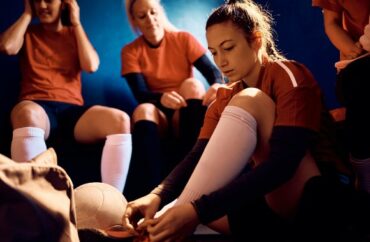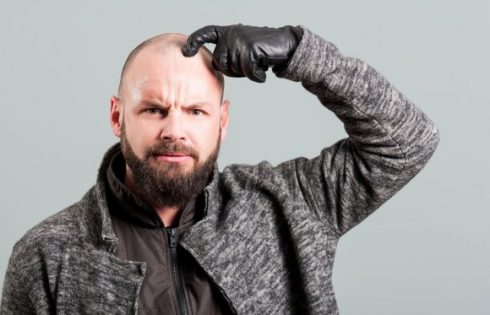
Equal Rights Amendment adds ‘sexual orientation, gender identity, gender expression’ as protected classes
New York voters approved adding an “Equal Rights Amendment” to their constitution this month, which some say will force schools to allow males to compete in women’s sports.
Both a leading supporter and an opponent told The College Fix the amendment will not change much in New York right away. However, it could impact future decisions by the courts on civil rights issues involving gender, parental rights, and religious freedom.
“It actually does not change anything on the ground,” Justin Flagg, spokesperson for state Sen. Liz Krueger, who sponsored the amendment, told The College Fix.
“Currently under federal Title IX, and this has been interpreted by federal courts, students are allowed to play on the teams that match their gender identity,” Flagg said in a recent phone interview.
“That’s also a part of the New York state law. It also supersedes New York’s constitution … that’s currently the law of the land in the entire country …” he said. “The sky is not falling.”
The amendment, which passed as the ballot measure Proposition 1, adds to the protections from discrimination in the state constitution.
These include a person’s “sex, including sexual orientation, gender identity, gender expression, pregnancy, pregnancy outcomes, and reproductive healthcare and autonomy.”
On Nov. 5, the amendment passed with 56 percent voting in favor and 34 percent opposed, according to unofficial election results.
The Coalition to Protect Kids NY, which opposed Proposition 1, stated on its website the amendment would “allow biological males to compete in girls’ sports.” PolitiFact rated the statement as “mostly true.”
The coalition did not respond to several requests for comment via email from The Fix over the past two weeks.
Another opponent, New York civil rights attorney Bobbie Cox told Newsmax in an October interview that the amendment will “erode parental rights” and “give males a constitutional right to be in female spaces, locker rooms, bathrooms, showers, dormitories.”
Cox did not respond to two emails from The Fix asking for her response to the amendment passing.
Student athletes and their families also participated in a protest against the amendment in October, the New York Post reported.
MORE: Coach suspended after filing complaint about transgender athlete on women’s volleyball team
However, Flagg, director of communications for Sen. Krueger, said the amendment does not change much in the short term.
“So, we’ve added ethnicity, national origin, age, disability, sex, including sexual orientation, gender identity, gender expression, pregnancy, pregnancy outcomes, and reproductive healthcare and autonomy,” Flagg told The Fix.
“Meaning that in the future if legislature or a governor were to try to, for example, restrict abortion access, they would not be able to do that,” he said.
Cameron Macdonald, adjunct fellow with the conservative think tank Empire Center for Public Policy, also said the amendment’s impact likely will not be felt right away.
“Somebody would actually need to go and challenge or rule a law separating sex and sports for instance and have the courts strike it down as unconstitutional,” Macdonald told The Fix in a recent phone interview.
“It really doesn’t do much directly because the way the law works,” Macdonald said.
Still, he predicted the amendment “could throw New York civil rights into turmoil” in an executive summary published ahead of the vote.
“Prop One doesn’t create or destroy any particular individual rights,” he told The Fix. “What it does is it brings in this non-discrimination mandate which then potentially gives people an opportunity to challenge the status quo under the offices of adhering to the constitution’s non-discrimination provisions.”
These lawsuits may “include irreconcilable differences between classes like religious belief and gender identity,” according to his executive summary.
Macdonald wrote that the state legislature should be handling conflicts on “value judgements” and civil rights policies, but the amendment puts the decisions in the hands of the courts.
Meanwhile, the New York Republican State Committee, which also opposed the amendment, is advocating against a proposed state Department of Education rule regarding athletic participation.
The rule will change “the current policy prohibiting biological males from playing on women’s and girls’ teams to allowing biological males to play on teams based on gender preference,” according to a fact sheet from the committee, published this month.
The committee pointed to a recent Siena College poll that found 66 percent of New York voters believe high school athletes should only compete with others of the same sex they were assigned at birth.
“Women will bear the burden and the consequences of this outrageous policy,” the fact sheet states.
The committee did not respond to several emailed requests for comment from The College Fix over the past two weeks, asking about the passage of the amendment and the impact on women’s sports.
The ACLU of New York, the New York Equal Rights Coalition, and the Independent Women’s Forum also did not respond to two emails from The Fix asking for their response to voters’ approval of the amendment.
MORE: Utah State U. asks to join case challenging males in women’s sports
IMAGE: Drazen Zigic/Shutterstock
Like The College Fix on Facebook / Follow us on Twitter






Please join the conversation about our stories on Facebook, Twitter, Instagram, Reddit, MeWe, Rumble, Gab, Minds and Gettr.